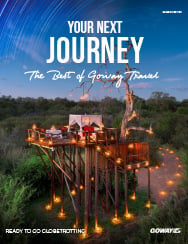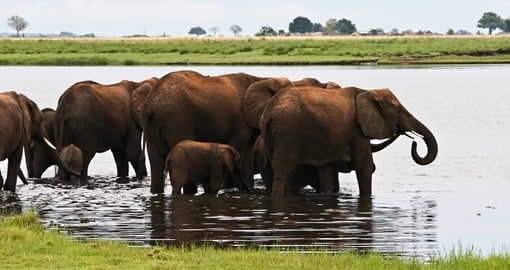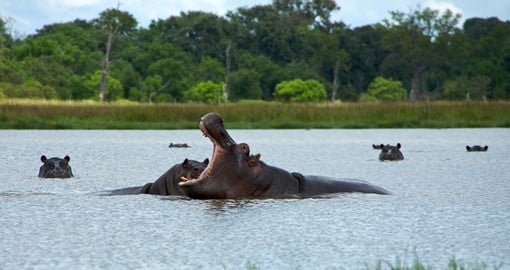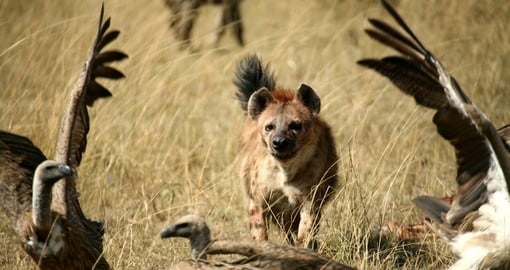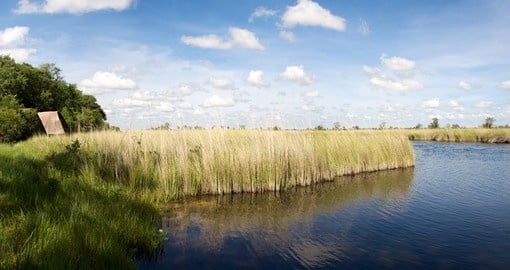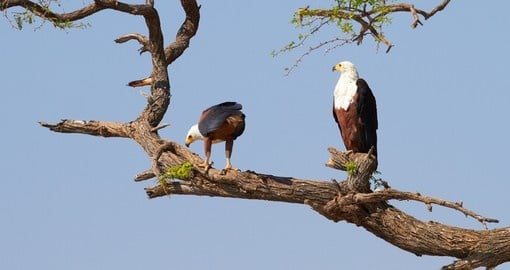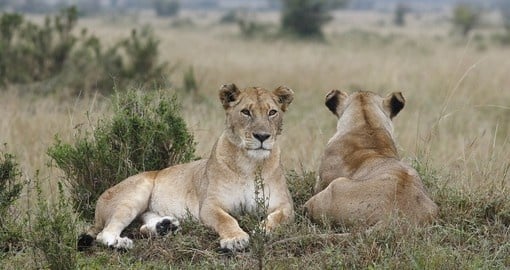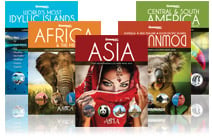Botswana History
Archaeological evidence found in the northwestern corner of Botswana suggests that there were Khoesan-speaking peoples (those who spoke either Khoe or San languages) living in the country for thousands of years. These early people were originally hunters and gatherers, but in the last centuries of BC, they shifted to herding cattle and sheep. This pastoral lifestyle existed for a few hundred years before the Iron Age farming culture took over. Between 200-500 AD, Bantu-speaking farmers began to assemble in the south coming from the north and the east.
By the 14th century, one of the most significant events in the country’s history happened - the evolution of the three main branches of the Tswana tribe. Three brothers, Kwena, Ngwaketse and Nwgato broke away from their father’s kingdom to establish their own in Molepolole, Kanye and Serowe. Today, it is estimated that ethnic Tswana people make up about 80% of the population in Botswana. The country was named for them and the eight major tribes within Botswana speak the Tswana language.
European interest in Botswana began to peak in 1820 when the Boers (Dutch-speaking settlers) began their great trek across the Vaal River. The Boers believed that they had a heavenly sanctioned right to any land in southern Africa and quickly established settlements in Tswana and Zulu territory, ignoring the native populations who already lived there. After the Sand River Convention of 1852 which saw Britain recognize the independence of the Transvaal Boer Republic (established north of the Vaal River in modern-day South Africa), the Boers declared the territory known as Batswana to be under the newly created South African Republic. Local leaders were angered by this decision and vehemently refused to accept foreign rule.
In response, representatives were sent to Britain to petition for protection. Unsure of what Botswana could offer, Britain only agreed to act as an arbitrator. The situation however intensified and in 1877, Britain was forced to annex the Transvaal which ultimately started the First Boer War. By 1885 Britain could no longer ignore the problems in Botswana and took action. Land south of the Molopo River became the British Crown Colony of Bechuanaland (Botswana) while the area to the north became the British Protectorate of Bechuanaland.
By 1924, South Africa began to push for Botswana to become part of the country. Tswana chiefs refused to result in economic sanctions that affected the country greatly. The 1940s witnessed the beginning of nationalistic sentiments in the country. The Beuchuanaland People’s Party was formed in 1960 and the Beuchuanaland Democratic Party was formed in 1962 creating a schedule for independence which relied heavily on chiefs and traditional Botswana beliefs. They drafted a new, nonracial constitution and sought a peaceful transfer of power. On September 30, 1966, the Republic of Botswana was granted independence. The discovery of diamonds near Orapa in 1967 was a huge boost for the economy with Botswana taking up to 70% of the profits.
The greatest threat to Botswana’s stability today is AIDS. The country has the highest HIV infection rate in the world. Recognizing this serious threat, the government established the National Aids Council which provides educational programming for schools throughout the country. The country consistently promotes public awareness and purchases antiretroviral drugs to treat those affected. This is something that was traditionally unheard of in Africa. Despite being one of the poorest countries in Africa when it gained independence, Botswana’s economy has continued to grow. The government is nonracial, democratic and built upon a multiparty system with a constitution that guarantees freedom of speech, association, press and religion and equal rights. All of this, as well as excellent wildlife, makes Botswana an incredible destination for tourists.
Botswana Travel Information
At Goway we believe that a well-informed traveller is a safer traveller. With this in mind, we have compiled an easy-to-navigate travel information section dedicated to Botswana.
Learn about the history and culture of Botswana, the must-try food and drink, and what to pack in your suitcase. Read about Botswana's nature and wildlife, weather and geography, and 'Country Quickfacts' compiled by our travel experts. Our globetrotting tips, as well as our visa and health information, will help ensure you're properly prepared for a safe and enjoyable trip. The only way you could possibly learn more is by embarking on your journey and discovering Botswana for yourself. Start exploring… book one of our Botswana tours today!
Extend Your Trip
After your African Safari, why not consider one of Goway's Europe tours or Egypt tours en route from Botswana or perhaps a stopover in Dubai on one of our United Arab Emirates tours
Book your Botswana tour with Goway!
 AfricaExperts is the exclusive division of Goway that specializes in planning and organizing Botswana tours and experiences. Choose from an exclusive African safari, an independent travel module, a stay of distinction, a luxury cruise on the Zambezi and more. We want to be your first choice when next you go globetrotting to Botswana.
AfricaExperts is the exclusive division of Goway that specializes in planning and organizing Botswana tours and experiences. Choose from an exclusive African safari, an independent travel module, a stay of distinction, a luxury cruise on the Zambezi and more. We want to be your first choice when next you go globetrotting to Botswana.
Get a Trip Quote Order a Brochure
